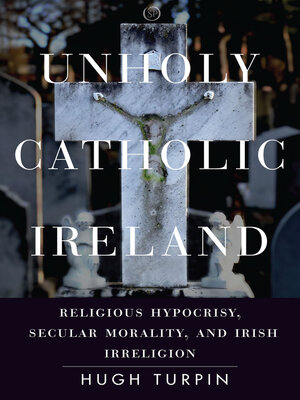Unholy Catholic Ireland
ebook ∣ Religious Hypocrisy, Secular Morality, and Irish Irreligion · Spiritual Phenomena
By Hugh Turpin

Sign up to save your library
With an OverDrive account, you can save your favorite libraries for at-a-glance information about availability. Find out more about OverDrive accounts.
Find this title in Libby, the library reading app by OverDrive.



Search for a digital library with this title
Title found at these libraries:
| Library Name | Distance |
|---|---|
| Loading... |
There are few instances of a contemporary Western European society more firmly welded to religion than Ireland is to Catholicism. For much of the twentieth century, to be considered a good Irish citizen was to be seen as a good and observant Catholic. Today, the opposite may increasingly be the case. The Irish Catholic Church, once a spiritual institution beyond question, is not only losing influence and relevance; in the eyes of many, it has become something utterly desacralized. In this book, Hugh Turpin offers an innovative and in-depth account of the nature and emergence of "ex-Catholicism"—a new model of the good, and secular, Irish person that is being rapidly adopted in Irish society.
Using rich quantitative and qualitative research methods, Turpin explains the emergence and character of religious rejection in the Republic. He examines how numerous factors—including economic growth, social liberalization, attenuated domestic religious socialization, the institutional scandals and moral collapse of the Church, and the Church's lingering influence in social institutions and laws—have interacted to produce a rapid growth in ex-Catholicism. By tracing the frictions within and between practicing Catholics, cultural Catholics, and ex-Catholics in a period of profound cultural change and moral reckoning, Turpin shows how deeply the meanings of being religious or non-religious have changed in the country once described as "Holy Catholic Ireland."







